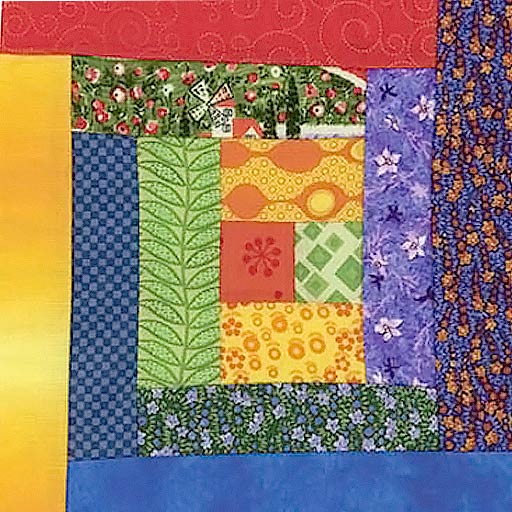“In our personal lives, Friends seek to ackowledge and nurture sexuality as a gift from God for celebrating human love with joy and intimacy…Learning to incorporate sexuality in our lives responsibly, joyfully, and with integrity should be a lifelong process beginning in childhood.”
PYM Faith and Practice, 2002.
Sexuality in Mid and Late Life:
Excerpts from Older, Wiser, Sexually Smarter
By Peggy Brick
The sexual scripts most of us learned as children are painfully inadequate for our lives as older adults. These scripts, instructing each of us how to think, feel, and act as male or female persons, commonly focus on the reproductive function of sex, define sex as penetrative intercourse only, stereotype gender roles, portray sex as for the young, discount gay, lesbian and bisexual persons, and generally discourage positive sexual attitudes. Such scripts need to be challenged.
In addition, many life changes require people to develop new expectations for their sexual lives. Loss of a partner through death or divorce, a variety of illnesses and disabilities, newrelationships, even the attitudes of one’s own children may require a new view of oneself as a sexual person.
Other barriers to older adults seeking sexual health and happiness are the current commercialization and the “medicalization” of sex, both of which promote quick (and expensive!) “solutions” to often complex interpersonal problems. An overwhelming array of “cures” tempt us: plastic surgery makeovers promise to correct every imperfection from wrinkles to “vulval unsightliness”; pills and a wild variety of penis enhancements guarantee larger, stronger, more powerful erections; an ever-more-exciting plethora of sex toys assure bigger, better orgasms; widely advertised videos assure us of “better sex for a lifetime.” Sexuality education aims to help people evaluate all the messages they receive from the media, advertisers, and pharmaceutical companies and then discover for themselves what can really enhance their sexual lives.
The following principles from Older Wiser, Sexually Smarter offer guidance for a healthy approach to sexuality and sexuality education in older adulthood :
Principles About Sexuality in Mid and Late Life
- Sexuality is a positive, life-affirming force. A positive approach to sexuality means acknowledging the pleasures, not just the dangers of sex.
- Older adults deserve respect. This respect includes an appreciation for individual sexual histories and the current stage of a person’s sexual journey.
- Older adults are not all alike. Older adults vary in their comfort with sexual language, in the discussion of sexual topics, and in participating in learning activities related to sexuality.
- Forget the cliche about “old dogs and new tricks”. Older adults are capable of writing new sexual scripts that can invigorate their sexual journeys. Sex is more than sexual intercourse, and there are many ways to be sexual without penetrative sex. Avoid the word “sex” whenever possible because of its vague meaning —when talking about intercourse, use the word “intercourse.”
- Older adults learn from each other. Older adults have many “lessons” to share and learn from each other. Discussing ideas with peers helps people take responsibility for their own learning.
- Older adults deserve accurate and explicit information, and also additional resources for discovery. Most people in this culture have lived with the message that sexuality is mysterious, secret, and shameful. Having access to the facts and a chance to talk openly helps people overcome those negative messages.
- Gay, lesbian, bisexual, and transgender individuals must be acknowledged, respected, and included in discussions. Participants in your audience will likely mirror society, and therefore have a variety of sexual orientations and gender identities. Acknowledging all sexual orientations and identities can help make sure all participants feel included.
- Flexible gender role behavior is fundamental to personal and sexual health. Strict adherence to traditional gender roles and stereotypes limits individuals’ potential as human beings.
- Make no assumptions! Avoid making assumptions about the sexual behaviors or sexual orientations of participants in your sessions. Some may be currently involved in sexual activities, others may not. Some may be married or in relationships, others may not.
About Older, Wiser, Sexually Smarter:
In 2003 Jan Lunquist and I created a teaching manual, New Expectations: Sexuality Education for Mid and Later Life, providing educators with 25 field-tested lessons for older adults. It aimed to help people “celebrate sexuality from birth until death.” Six years later, informed by many workshops, trainings, new resources and research reports, we have developed this completely revised (and renamed) second edition. It is greatly enhanced by the work of our two new authors, Bill Tavemer and Allyson Sandak, and by creative lessons from a number of new educators.
Our lessons encourage participants to identify the issues that confront them, re-think their old scripts, and consider how to create new and positive ways of being sexual as they age. Older, Wiser, Sexually Smarter updates and expands all the lessons, includes three useful timelines, and adds lessons that address additional concerns including: intimacy and communication issues; masturbation; body image; spirituality; cyber sex, and how to talk about sex with your Physician.
Older, Wiser, Sexually Smarter (Copyright 2009) is available through:
The Center for Family Life Education
Planned Parenthood of Greater Northern New Jersey, Inc.
196 Speedwell Avenue
Morristown, NJ 07960
(973) 539-9580
www.ppgnnj.org
email hidden; JavaScript is required
LINKS TO MORE INFORMATION: Click on the blue text below to be directed to outside websites that offer additional information on this topic. The websites will open in a new window, when you are done, simply click out of that window and you will be back on this site.
Widener College Sexuality and Aging website
Friends Meetings in New York and Philadelphia Yearly Meetings may call your Yearly Meeting office if you are interested in a workshop on Sexuality and Aging. Contact us here

